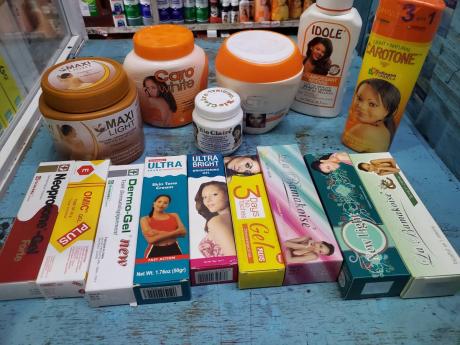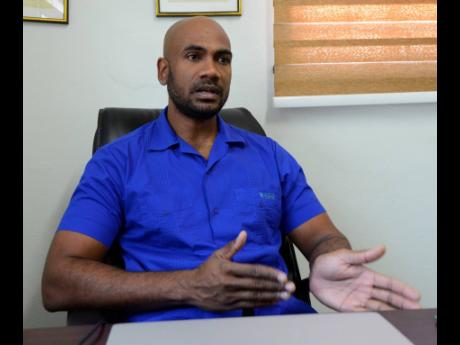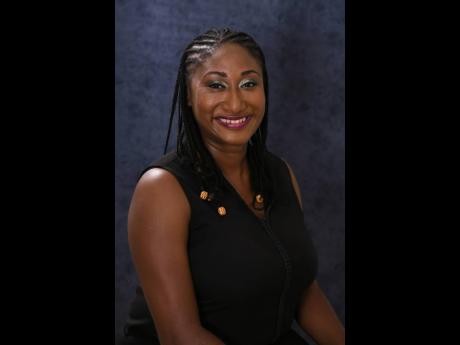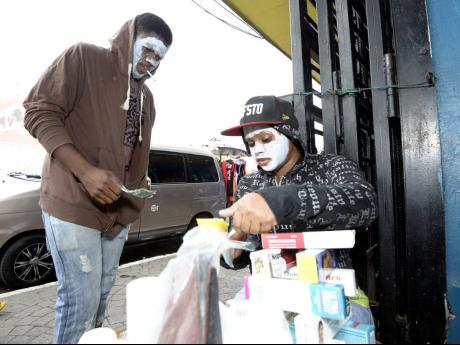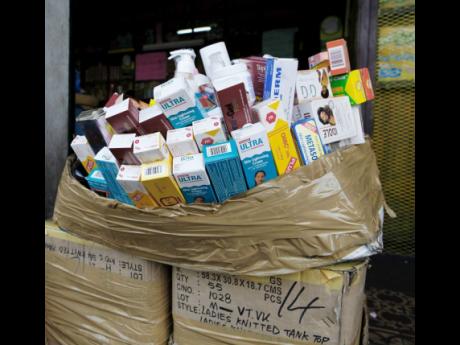Doctors refuse to have skin bleachers as patients
Medical practitioners take drastic action to avoid risk of complications
Several Jamaicans who have used chemicals to lighten their skin are now caught in a quandary as some medical practitioners are flatly refusing to treat them – regardless of their health concern – because of the heightened risk of developing life-...
Several Jamaicans who have used chemicals to lighten their skin are now caught in a quandary as some medical practitioners are flatly refusing to treat them – regardless of their health concern – because of the heightened risk of developing life-threatening complications during some medical procedures.
“Personally, I have taken a decision not to operate on persons who are actively bleaching,” general laparoscopic and weight-loss surgeon Dr Alfred Dawes admitted when contacted by The Sunday Gleaner last week.
“I have seen too many complications with their wounds not healing and a higher rate of surgical site infections. Some cases are so bad that it is even difficult to remove dressings in some patients as their skin tears off on the tape.”
Added Dawes: “Unfortunately, the practice of skin bleaching is becoming far too common and negatively affects outcomes in emergency surgeries.”
One cosmetic surgeon, who requested that his identity be withheld, said that he and several of his colleagues have also stopped seeing patients who refused to heed their advice, many of whom are now regretting their decision to bleach their skin.
“Along with all the medical complications associated with this practice is the difficulty it creates for us to do our jobs properly,” said the surgeon.
For years, countries around the world have been grappling with the unhealthy practice of skin-lightening, which has spawned a booming multibillion-dollar global industry.
A world health report noted that in 2020, bleaching creams and injectables raked in US$8.6 billion globally. The market is projected to reach US$12.3 billion by 2027.
The practice has also led to a flourishing underground market, through which many concoctions which have not been scientifically tested are being used to reduce melanin production in the skin.
“Socio-economic status, career opportunities, attractiveness, finding a partner are directly correlated with skin colour, so many black persons use chemical remedies to lighten their complexion as their ticket to a better life. No matter how many warnings they get, they ignore them. They don’t care about the harmful effects you are telling them,” one psychologist noted.
Skin-whitening products contain toxic chemicals such as mercury, steroids or hydroquinone, and misuse or prolonged use has resulted in detrimental consequences for users. Some persons even create their own home-made concoction, blending household products and chemicals, which increases the danger,” said Dr Llorenia Muir-Green, head of dermatology at the St James-based Cornwall Regional Hospital.
“I can understand the stance of my medical colleagues to not have them as patients, as steroid bleaching agents can cause impaired wound healing when the skin is compromised,” explained Muir-Green.
“There are different reactions when one applies chemicals to the skin. The practice can thin out the skin and, therefore, an IV line can be difficult because you don’t have enough skin to anchor it on,” she added.
Muir-Green, a past president of the Dermatology Association of Jamaica and an associate lecturer at The University of the West Indies, said skin bleaching can also have long-term consequences such as skin cancer and severe side effects, such as itching, scarring, and redness.
Long-term use of one of the ingredients, hydroquinone, can cause a disfiguring condition called ochronosis, while some of the older creams contain mercury that can be damaging to the kidney.
SHOULD THERE BE A BAN?
Several African countries, including Rwanda, South Africa, Kenya, Ivory Coast, Uganda and Ghana, have made the sale of skin-whitening products a crime. But this has led to a growth in the underground market.
Lesley Onyon, a toxicologist at the World Health Organization’s (WHO) Chemical Safety and Health Unit, who works on projects regulating skin-whitening products, said recently that restricted access to skin-whitening products through a ban will have some success, but will drive up prices in the underground marketplace.
“A ban could lead to more locally produced counterfeit products, as well as other illegal sources … . If there is a cheaper alternative being sold – what is sometimes called a hack – it can be more dangerous,” Onyon added.
University lecturer and Dermatology Association of Jamaica President Dr Jonathan Ho said he is not in support of a ban on skin-lightening agents, but hopes for stronger regulations locally, such as making the products accessible through prescriptions from medical professionals and available at regulated pharmacies only.
“I think that from a government point of view, rather than a ban on the agents, there needs to be more regulation of these people who are selling this product that they should not be selling,” the dermatologist told The Sunday Gleaner.
“As far as public health goes, there are many more exposures that are more dangerous and cause more concern than skin bleaching. There is diabetes and hypertension, but we don’t ban sugar and fast-food or smoking, because while I understand why Rwanda and other countries made such a decision, our policy should be geared towards educating our citizens to make wise lifestyle choices.”
Locally, the sale of skin-bleaching products is currently free for all, with the products being sold in haberdasheries and cosmetic stores, as well as streetside vendors in major towns across Jamaica. Some vendors even offer home-made concoctions.
“Ultra-Bright Brightening Gel is a popular substance being sold for $290 to $350 at several locations,” one skin bleacher, who is also a merchant, told The Sunday Gleaner on Friday.
Neoprosone-Gel is also popular among bleachers and can be purchased over the counter for about $400, while another top-selling product, CT+ Clear Therapy Extra Lightening Cream, is being sold for $1,800, she noted.
“Clear Therapy is a popular product among ardent bleachers, who mix it with other toning products for faster results,” she said.
The process for the faster result is called ‘come quick’, which sees transformation in a few days if directions are followed to the letter.
Health professionals agree that there should be regulations and that the health ministry’s pharmaceutical division should account for the management of agents that have prescription strength.
“What we suspect is that many of the creams sold as ‘brightening’ have high percentages of compounds which should only be accessible with a prescription, but because a lot of them are unlabelled or sold in small amounts, it is hard to know what the ingredients are,” a veteran in the field of dermatology told The Sunday Gleaner. “Some of the less harmful ones are cosmetic grade and probably don’t do much harm.”
Unregulated merchants also use social media to offer their products, including pills, soaps, gels, and creams they say will lead to a lighter skin tone in 45 minutes.
When contacted, Health Minister Dr Christopher Tufton said he was awaiting further details on the local situation.
‘BLEACHING WILL NEVER STOP’
Despite the precautions and health risk, bleachers are unfazed.
“Bleaching will never stop; it’s the way of life in the ghetto,” said a 17-year-old sales clerk in a haberdashery near the Charles Gordon Market in Montego Bay on Thursday. “Three out of every five customers are here to purchase bleaching products.”
Dianna, a 38-year-old bartender, has been toning her skin since 2016.
“Nothing is wrong with it. It is about your choice,” she told The Sunday Gleaner. “I just love the look; the dark skin thing was not working for me.”
She said in the informal settlement where she lives, bleaching is the norm. There, some persons use home-made mixtures with toothpaste or curry powder, but most are willing to invest in the raft of products on offer.
Dianna said to maintain her look, she spends about $7,000 on bleaching products weekly, frequently applying them to her entire body.
“I rub three times daily. The last time is when I am going to bed and the result is amazing,” she bragged. “I am aware of all the talk, but I am comfortable with my decisions and I am sure no Government is brave enough to come into the ghetto and try to stop bleaching.”
Her older daughter, who also lightens her complexion, defends the practice as the fashionable thing to do.
“You get more attention, and you are more likely to be accepted. It is just the in thing now … just fashion,” said the daughter.
“Historically, there has been this colonial subconscious belief that if you have lighter or whiter skin, you are superior, and it has been reinforced over the years that the lighter-skinned people will be treated more favourably by people with higher status,” clinical psychologist Dr Susaye Rattigan told The Sunday Gleaner.
“Then the media have informed the narrative that if you are lighter, then you are more beautiful, liked by more people and wealthier.”
But a lot of this reaction and desperation to make such changes to self is not being able to accept yourself, Rattigan said.
“It’s really about feeling inferior because of your skin and wanting to intervene in a way that increases your social capital or your beauty currency,” she added. “Some also see it as an advantage, being placed in a strategic position to get a better job or to be selected for a better position to enhance their standard of living.”
• The 2016-2017 Jamaica Health and Lifestyle Survey estimated that about 11 per cent of Jamaica’s 2.8 million citizens, or 300,000 people, bleach their skin.
• Some 12.5 per cent of men reported bleaching their skin, compared to 8.8 per cent of women.
• Prevalence was highest in 15- to 34-year-olds.
• The World Health Organization warns that dangerous skin bleaching has become a public health crisis, stating that it can cause not just damage to the skin but life-threatening ailments such as liver and kidney damage, neurological problems, cancer and, for pregnant women, stillbirth. It can also cause severe side effects such as itching, scarring, redness and thinning of the skin.
• Long-term use of hydroquinone, a main component of skin whitening products, can cause a disfiguring condition called ochronosis.
• Mercury, another common ingredient in skin-whitening products, is extremely toxic and long-term exposure includes kidney and liver damage, as well as neurological problems such as depression, anxiety and early childhood developmental issues.
• Other potential health hazards from skin bleaching are dermatitis, darkening of the skin, neurological problems, and foetal growth retardation.

